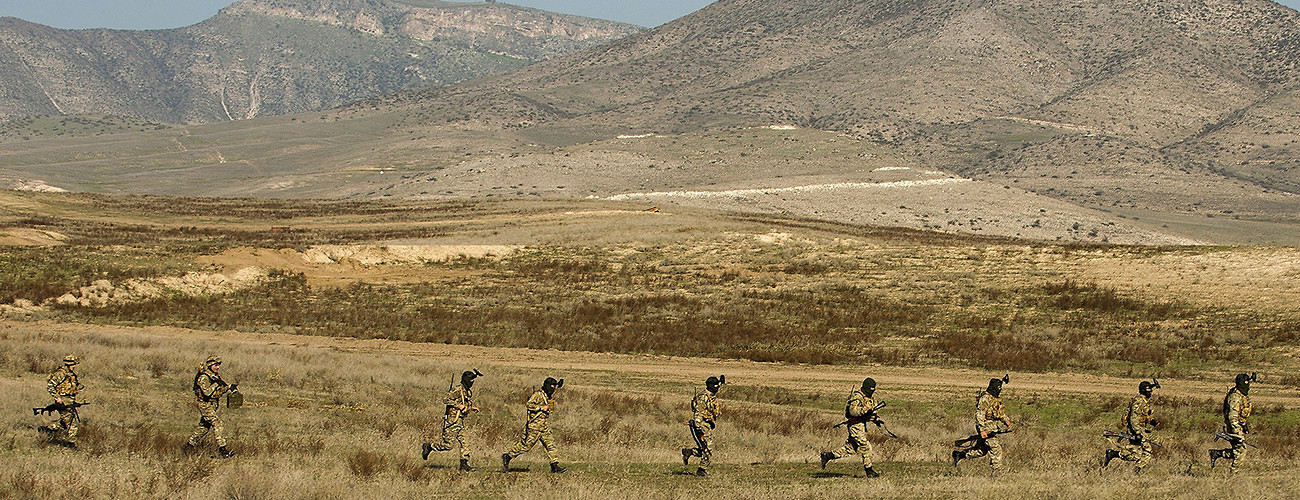Armenian and Karabakh armed forces hold joint military exercises at a training ground near the town of Tigranakert in Karabakh, November 14, 2014. (Getty Images/Karen Minasyan)
After nearly thirty years without peace, the conflict over the region of Karabakh, which pits Azerbaijan and Armenia against one another, has been called a “frozen conflict.” But with deadly fire across the line of contact every year, it is more accurate to say that the settlement process, rather than the conflict, is frozen. International mediation may have helped to deter the parties from resuming full-scale armed hostilities, but it has failed in its primary goal of resolving the conflict.
Why has peacemaking in the Karabakh conflict failed? Answering that question requires examining the roots of the conflict, the context in which it arose, and the factors that have kept it going. This study offers some frank evaluations of the efforts made over the years to resolve the conflict, some of which have not been discussed publicly except in the partisan narratives of one side or the other.
Although mediation in Karabakh has not worked, that does not mean it cannot work; the building blocks for a settlement have been under discussion for at least a decade. The main factor in the failure of negotiations has not been the mediators but the failure of the leaders of both sides to prepare their peoples for compromise. Having led their peoples to expect nothing short of total victory, the leaders live in fear that any solution will lead to a popular backlash that may kill them.
Achieving a lasting peace in the Karabakh conflict is not a matter of finding a deus ex machina, flattering leaders, or crafting and re-crafting words until the right combination is found. The mediators can best influence the issue by addressing a clear message to the leaders: the international community is here to help, to provide political cover, and even to serve as a scapegoat, but ultimately it is the leaders who need to work out a sustainable peace for themselves and a normal life for their people.








